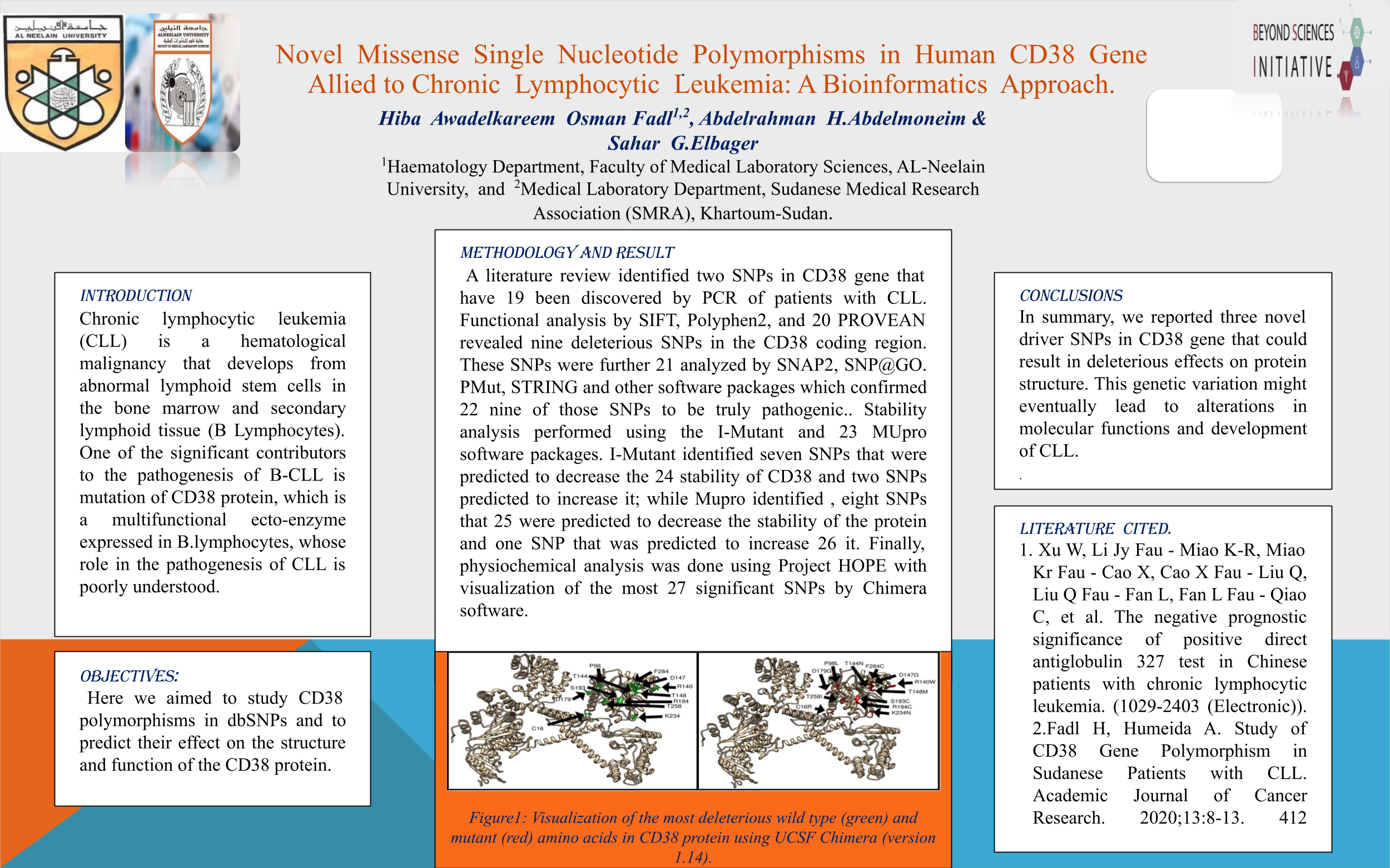Conference 2021 Poster Presentation
Project title
Novel Missense Single Nucleotide Polymorphisms in Human CD38 Gene Allied to Chronic Lymphocytic Leukemia: A Bioinformatics Approach.
Authors and Affiliations
Hiba Awadelkareem Osman Fadl1,2, Abdelrahman H. Abdelmoneim3,4, Sahar Gamal Elbager5,6
1. Haematology Department, Faculty of Medical Laboratory Sciences, AL-Neelain University
2. Medical Laboratory Department, Sudanese Medical Research Association (SMRA), Khartoum-Sudan
3. Faculty of Medicine, Al-Neelain University
4. Clinical Immunology resident, Sudan Medical Specialization Board, Khartoum-Sudan.
5. Haematology Department, Faculty of Medical Laboratory Sciences, University of Medical Sciences and Technology (UMST), Khartoum-Sudan
6. University of Putra Malaysia(UPM), Seri Kembangan- Malaysia.
Abstract
Background
Chronic lymphocytic leukemia (B.CLL) is a hematological malignancy that develops from abnormal lymphoid stem cells in the bone marrow and secondary lymphoid tissue (B Lymphocytes). One of the significant contributors to the pathogenesis of B-CLL is mutation of CD38 protein, which is a multifunctional ecto-enzyme expressed in B lymphocytes, whose role in the pathogenesis of CLL is poorly understood. Here we aimed to study CD38 polymorphisms in dbSNPs and to predict their effect on the structure and function of the CD38 protein.
Methods
Results
A literature review identified two SNPs in CD38 gene that have been discovered by PCR of patients with CLL. Functional analysis by SIFT, Polyphen2, and PROVEAN revealed nine deleterious SNPs in the CD38 coding region. These SNPs were further analyzed by SNAP2, SNP@GO. PMut, STRING and other software packages which confirmed nine of those SNPs to be truly pathogenic.. Stability analysis performed using the I-Mutant and MUpro software packages. I-Mutant identified seven SNPs that were predicted to decrease the stability of CD38 and two SNPs predicted to increase it; while Mupro identified , eight SNPs that were predicted to decrease the stability of the protein and one SNP that was predicted to increase it. Finally, physiochemical analysis was done using Project HOPE with visualization of the most significant SNPs by Chimera software.
Conclusions
In summary, we reported three novel driver SNPs in CD38 gene that could result in deleterious effects on protein structure. This genetic variation might eventually lead to alterations in molecular functions and development of CLL.

